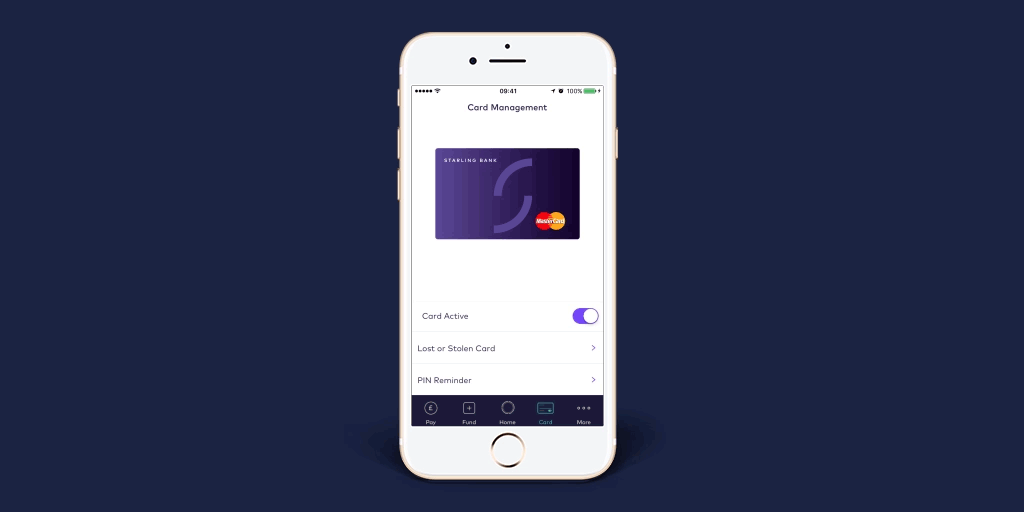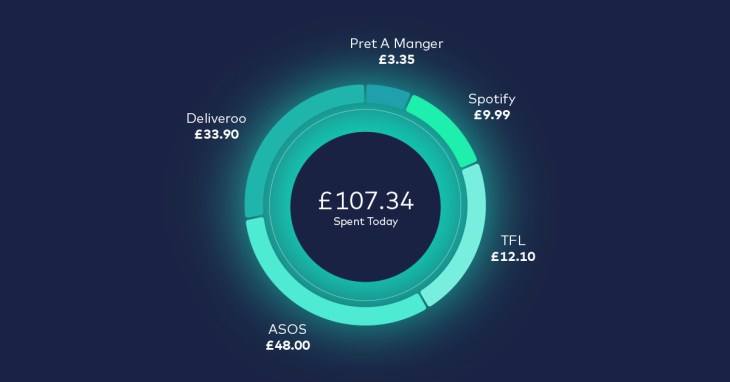Starling Bank, one of a number of digital-only or so-called “challenger” banks in the U.K., is launching a beta of the app that powers its current account, the first time it has been available beyond a very small group of private testers close to the company. Those already on the beta waiting list will begin being invited into the app as of today.
Initially available for iOS, with an Android beta to follow at the end of the month, the Starling Bank app lets you sign up to a full current account, thanks to the restricted banking license it was issued in July. Upon approval of your account, which involves things like photographing your passport or driving license via the app, you are issued a Starling Bank MasterCard debit card that can be used in the U.K. and abroad.
You also are able to set up regular payments (i.e. Direct Debits using an account number and sort code), and make one-off payments in and out of the account, including via the Faster Payments network.

And, similar to a plethora of other nascent challenger banks or neo-banking apps (that is, fintech startups that offer a current account experience without actually operating a bank/holding a banking license), the Starling Bank app lets you view your current account activity in real time, something most legacy banks fail or fall over trying to do. This takes the form of push notifications and the “Starling Pulse,” a real-time feed that displays all your account activity.
Another interesting aspect of the Starling Bank UI, which I’ve already had a short time playing with, is the way you secure the app. In addition to being asked to provide a 6-10 digit passcode, you are asked to record a short video message of you reading out a specific phrase. This, the startup tells me, is then used for the purpose of “biometric identification” in case you find yourself locked out of the app.
“We decided to go straight to build the full current account rather than go on a side trip to build a pre-paid card first,” Starling Bank founder Anne Boden told me in a call yesterday when I made the obvious comparison to rival Monzo, which launched its app in public beta last March but won’t launch a current account till later this summer.
“We wanted to put all our energies and creativity into producing something that provides all the services you need, not just a card,” says Boden. “Plus lots more things we can do because we built our technology ourselves.”
The staggered beta launch also comes a day after Starling Bank announced a partnership with currency exchange company TransferWise as part of the challenger bank’s broader strategy to offer a marketplace of additional financial services within the app. That’s an idea that is also being pursued by Monzo and a host of other fintech startups that want to be the hub for your financial life by letting you connect one app to all of the financial services and products you use or require.
“I think I started talking about marketplaces and banking three years ago,” says the Starling Bank founder with a chuckle. “I’ve had a career in banking and I’ve worked in lots of banks that felt they were the best provider of all the products for all of their customers… ‘sell a current account and cross-sell this service or that service.’ But customers are much more sophisticated now-a-days, they like to make their own decisions and have a whole range of products to choose from.”
Instead, Starling decided that it wanted to do one thing “really, really well,” which is to offer a current account, a product heavily reliant on technology. “And we are going to co-exist with other products, other providers,” she says. In addition to currency exchange, for example, this could include mortgages.
“The world is changing, there’s an ecosystem out there of innovative and creative fintech organizations. We are going to be the center of that ecosystem, linking customers to the right products from the right partners.”
The startup is also embracing so-called “open banking,” which the European Union and the U.K. government have legislated to force all banks to eventually do, something Boden supports. To get on the front foot, Starling Bank is holding its first hackathon next month based on its soon-to-launch current account open API.
Lastly, I asked why Starling needed to be a bank, when so much innovation is — and will be — possible by simply building on top of existing banking rails. The answer? It’s the business model, stupid.
“We can respond to all of the great things happening out there in the fintech market, but we also have a revenue model that’s sustainable… we’ll take in deposits and lend out a portion as overdrafts,” Boden says. “We’re not going to punish you for going overdrawn [with hidden charges]. It’s all about being transparent and fair.”
